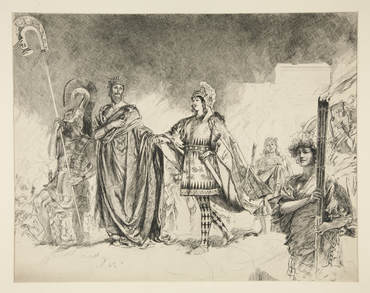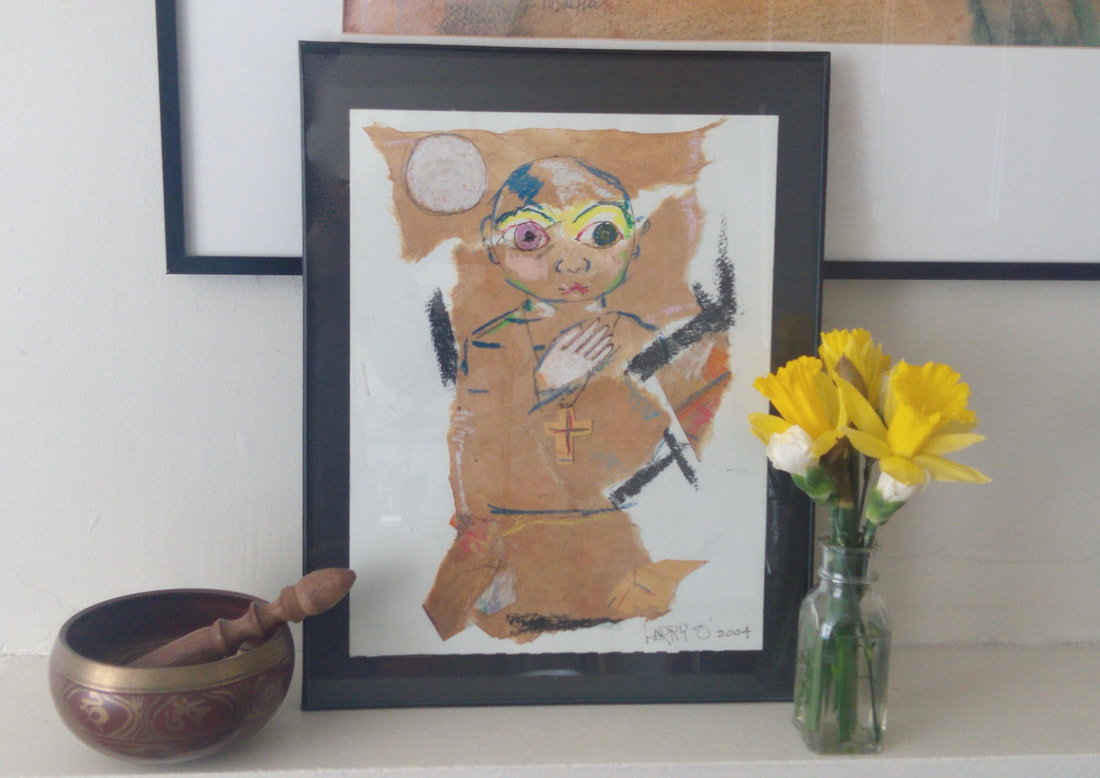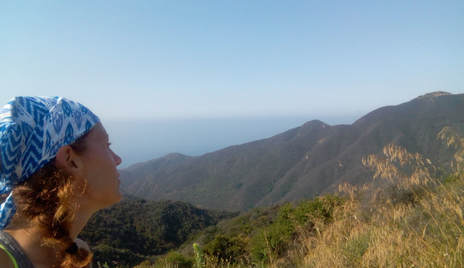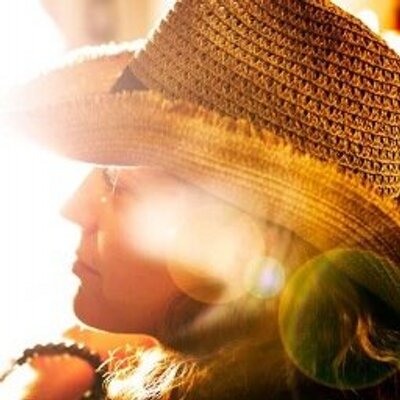|
Here's a little talk (slightly expanded and refined for essay format) that I gave at the top of my second Embodied Imagination - Yoga for Writers workshop at the Calvin College Festival of Faith and Writing #ffwgr2018 this past weekend.  Marriage Morning of Theseus and Hippolyta (study for .1036) - Enter Theseus, from A Midsummer Night’s Dream. Edwin Austin Abbey, American, 1852–1911, M.A. (Hon.) 1897 Marriage Morning of Theseus and Hippolyta (study for .1036) - Enter Theseus, from A Midsummer Night’s Dream. Edwin Austin Abbey, American, 1852–1911, M.A. (Hon.) 1897 Welcome to Embodied Imagination - Yoga for Writers! My name is Jenny. I’m a writer-actor-teacher specializing in innovative interdisciplinary yoga-based programs for enhanced creativity -- which is a bloated and buzzwordy way of saying, I work with artists -- writers, actors, all sorts of creative types, and some intrepid civilians -- to explore physical pathways to the imagination. I integrate a number of different forms of exercise that help create a sense of flow between the body and subtler aspects of the self. We'll start by opening key muscle groups that tend to hold tension and block access to some of our richest creative resources. For example, in yoga, the hip area is considered the seat of memory. How ironic that as writers we spend so much time at the desk, actually sitting on some of our best material. We'll also do a lot of work with breath, because breath acts as a connector between the physical body and the unconscious. Consciously paying attention to breath can lead us past thought into deeper reaches of the psyche. We'll explore sound as well -- investigate how freeing the voice (vocal instrument) can help free the Voice (artistic expression). And we'll close with a guided relaxation designed to stimulate the senses and ignite the imagination. Over the last few years I’ve become particularly interested in how nurturing the relationship between the body and imagination can impact our use of language, particularly for writers. Can we stimulate the creative response, make the words flow, by putting the body into motion and practicing vocal release? How do we find and cultivate authentic “resonance” -- both physical and figurative -- with the words we use? We tend to think of language as a product of the intellect, of thought, which it is of course, especially for writerly types, whose job is to get smart, expressive words down on paper. We often bypass the body and voice altogether, especially if we bang out our stories and poems on a computer. And yet, words are made up of sounds, at least, in spoken form. {Sidebar: The origins of complex language are a mystery. Many theories exist, including debate whether communicative grunts and noises gradually developed into words, or whether the first languages were sign languages, or whether language developed rather suddenly with anatomical evolution, and so forth. Some theories suggest that early humans sang before they spoke. For individuals though, sounds are precursors to words.} Our first communications are sounds, the infant’s “early attempts at speaking,” (KidsHealth.org) before she knows language and can form words. The sounds rise from an intrinsic, primitive need to say something, to express feeling, get aid or attention. Sounds carry emotion, urgency. They come from our bodies, and vibrate within us. I’ve been struck the last couple days, as I’ve attended readings and lectures at this wonderful festival of language, how often I’ve heard words like resonance, flow, and embodiment. Parker Palmer talked about the need to “descend the mind into the heart.” Over and over again, I’ve found myself sitting in a session crying, with no thought about it, no logical, identifiable reason, and no warning, no choked-up moment-before, when I know it’s coming -- just suddenly, tears -- flowing freely, without strain, and from, it would seem, a deep well. I cried through Kwame Alexander (and he was hilarious!); I cried at Natashia Deón; I cried through a lecture about Flannery O’Connor. But it was especially the poets that got me: Pádraig Ó Tuama, Marie Howe, Robin Coste Lewis. What's wrong with me? I wondered as I sat there blubbering, worried that people might think I’m slightly touched (as in “nuts,” not as in “moved”). "Pay attention," writes my good friend, author Jennifer Grant, "to what makes you cry," referencing Frederick Buechner's Beyond Words, It wasn’t until I was going over my notes for this evening’s class that it dawned on me that perhaps what I've been experiencing is resonance. I’ve been so busy considering resonance as part of the writer’s process, I think I forgot that the receiver experiences it as well; that that’s kind of the point. Communion. Something beyond thought, beyond intellect, deeper even than recognized or shared experience, different than scholarly exegesis -- resonance occurs when receptivity encounters the primal pulse of an artist’s offering. Poets, especially, focus not only on the meaning of words but on their sounds and how they work together. When they read them aloud, those words act on us in powerful ways. When I taught my first workshop here yesterday, we were experimenting with language -- doing vigorous visceral exploration of text, learned or created, to see how physicality might open up meaning for us, or enhance our ability to express through those words. I used a phrase from Shakespeare: ...imagination bodies forth / the forms of things unknown… In the full quote from A Midsummer Night's Dream, Theseus dismisses poets as madmen for their tendency to create something out of nothing. But note Shakespeare's choice of words, the acknowledgement of the almost "magical" power of the artist's imagination to embody, give form to the invisible, and put it out there as truth. Today in a panel discussion I attended, poet Pádraig Ó Tuama said, “Sacrament makes something physical happen, out of air.” Ah! I love that -- the similarity of those two quotes, the resonance between them. I don’t identify with a rigidly specific set of religious “beliefs,” but I’m pretty heavily invested in holy mystery. Much and many. But as mysteries go, it’s hard to beat incarnation. Word becoming flesh. An inextricable relationship between tangible and intangible, between a body and the most extraordinary thing that can be imagined. We live in a culture that relentlessly divorces the body from subtler aspects of the self -- the mind, emotions, imagination, spirit. We intuit this, or there wouldn’t be such high demand for classes and exercise modalities claiming to be "holistic" and “mind-body.” But the disconnect is implicit in some of our most formative personal and social structures; just recall junior high, when you first learned that there are jocks and there are nerds. This particular brand of binary thinking has broad reach and severe consequences. It puts us in a box It divides us into tribes It cuts us off from the fullness of our humanity, our selves as creative beings It dis-integrates. Work done toward integration of body and spirit can be sacred -- a sacrament, in the elemental way Pádraig Ó Tuama described. The artist’s task, not so far removed from the priest’s, is to make integration a practice; to move into some kind of holy flow and reveal something from within the current of that reciprocity. The Voice that emerges from that work -- words spoken from the gut -- might draw us closer to something true. To resonance. They might make something manifest, and allow a receiver to enter into the mystery. In her panel discussion with Parker Palmer, songwriter Carrie Newcomer said that the closest thing she knows to communion, in the Eucharistic sense, is when she’s writing “in the zone.” My own nearest experience to authentic prayer is moving my body on the yoga mat, or running and writing in the canyon, and letting words emerge from somewhere beyond the brain. And so the invitation, as we enter into an hour of yoga practice -- tonight’s juicy, luxurious, warming, deeply relaxing flow -- is to allow yourself to enjoy having a body, being an embodied creature, living in the body the creator gave you. Take up space. Make noise. Flow your own way. And let that sense of delight, of letting go into your physical self, open you up to fresh creative possibilities, fuller imaginative expression.
Be open to what resonates.
1 Comment
|
ArchivesCategoriesAll text and images, except where credited, are © Jenny Sheffer Stevens and The Regular Jenny, 2018 -- All rights reserved.
|
Read my recent interview in:
© COPYRIGHT 2015-2021. ALL RIGHTS RESERVED.



 RSS Feed
RSS Feed
